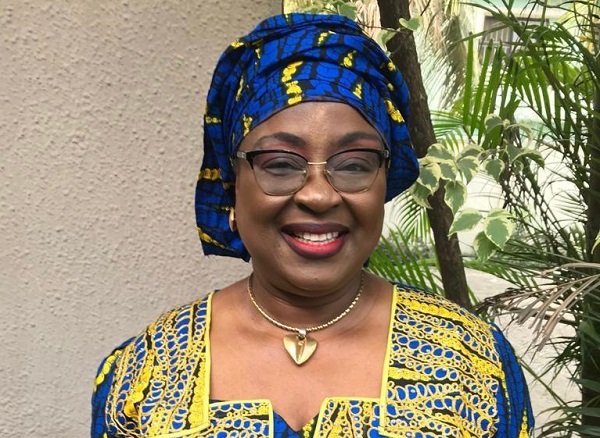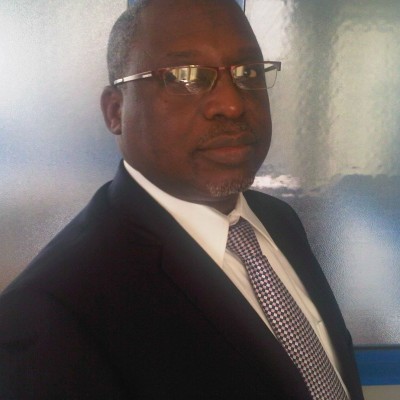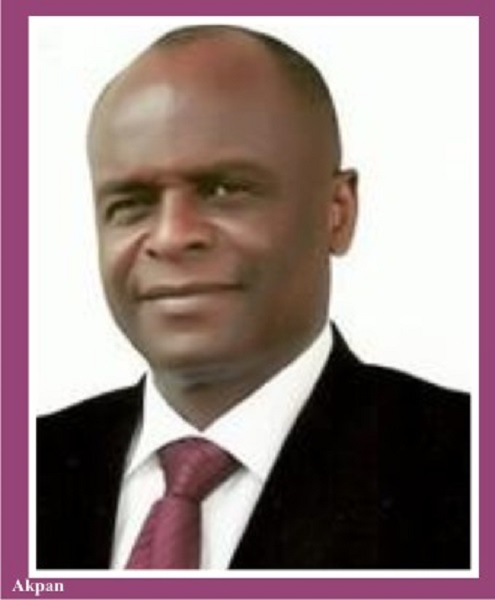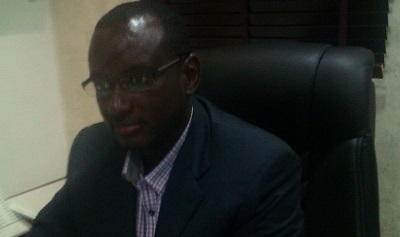How African Nations Can Tackle Marine Pollution – Mogo

By Kenneth Jukpor
Dr. Felicia Mogo is the Founder of African Marine Environment Sustainability Initiative (AFMESI). She is also a former Director, Marine Environment Management (MEM) at the Nigerian Maritime Administration and Safety Agency (NIMASA). During the 2nd AFMESI symposium which held in Lagos last week, Dr. Mogo granted this interview to MMS Plus newspaper.
Enjoy it:
This seminar intends to aid sustainable exploitation of the blue economy in Nigeria and Africa at large. How significant is this symposium?
This is the second symposium of the African Marine Environmental Sustainability Initiative known as AMESI. The conference is on “Marine Pollution Prevention and Control towards Blue economy”. The world is talking about blue economy and there are lots of opportunities, but we ought to go about tapping into this resource with utmost respect for the environment as we seek to improve the economic status of coastal states. It always important that we remind ourselves about the need to reduce if not eliminate pollution.
So, the significance of this issue led AFMESI to deem it fit to tag this year’s topic about pollution because it is something preventing us from achieving the blue economy potentials even though we have all the resources. We have the mineral resources, the sandy beaches, the mangrove vegetation, flora and fauna in the ocean and we have these in really high numbers compared to other countries and other continents. Nigeria has a long coastline and there are no natural disasters from the ocean of in the region; it is only pollution that may make us not to achieve that.
Looking at the economic aspect, how much revenue can Nigeria accrue from the blue economy or how would you rate it the value of the sector?
It is always been rated high and sometimes low but at AFMESI, we don’t just judge the wealth from the Gross Domestic Product (GDP). We look at it that meticulously, knowing that wealth should be in totality of everything. Wealth creation and the value of the sector should be addressed on the pillars of sustainable development as prescribed by United Nations. It should address economic values, cultural, social, and environmental issues and the crucial aspect of public health.
So that’s how we want to get it. Our interest is in research area and we are determined to take advantage of this area. Some people have drawn from this activity, we want to fill up our strategic plan for the next five years,
Recycling is a critical area with regards managing plastics pollution and there are lots of opportunities there environmentally by making the waters clean and the economic aspect which is in generating revenue from it. What’s the place of recycling?
Well, it is huge and that’s why we invited production companies, for example Nigeria Bottling Company (NBC) because they have been trying to get involved. When talking about recycling one needs to understand or talk about the source of the waste materials. Most of the things seen on the oceans in Nigeria and some other parts of Africa are plastic wastes such as bottles, cans, etc from products of bottling companies and others. Some of these items degrade to become toxic substances.
Some Nigerian are already making efforts to address the menace of waste in the marine environment. In a bid to combat this, some of the producing companies formed an alliance for producers of beverages that has been formed to look into how to manage recycling in order to encourage permanent communities and groups to get into recycling.
Although that is one of the crucial ways of managing waste, we emphasize more on reduction from the source, nevertheless, we also encourage recycling. With recycling you can do so many things like buying back the waste and recycling. It can also be a way of empowering the community because if they are picking up their pets bottles it is a form of empowerment resource through waste management. They will take care of the environment and also get benefit from it. That’s why we want to partner with the NBC and others.
We’re also going to extend to other parts of Africa. We are developing partnership with African Union and capacity building. You can see the existing partnerships from Canada, Washington DC with Ocean Initiative and Ocean Foundation, respectively. There are also many other groups that have expressed interest to partner with us and we hope to strategize and tackle such issues and we started to listen.
How about the aspect of liquid waste and how is the compliance in this area with the International Oil Companies (IOCs)?
We are getting into that, we are relatively a young NGO, but with high ambition to redefine the marine environment in Africa. We are engaging different groups and we already have a voice already in African Union. So, we use that as a Pan-African organization. It’s all about Africa, not an individual country. We are going to engage all industries that have the ocean as their corridors or have their businesses offshore.
There must be a situation where each region will be able to take of its waste that it is generating. That should be the principle even in the United Nations as the producers of waste must take full responsibility of it. This is very important when it comes to solid waste management but liquid waste which from the pipes and we will also make sure that they manage their waste properly.
There are situations where host communities become hostile, thereby not allowing for accessibility discourages several investors in recycling. How do you intend to address this issue?
It is a very good point, if we all do something in our space eventually we will get there. So, with this point raised, it just occurred to me that we need to partner with the media to create more awareness. There was a time I supported a vision formation for the media, we can come up with similar idea with the media before we talk to them, it is an advocacy and all about knowledge, if they know that we’re helping them they will definitely cooperate.
Another thing is poverty and this is a very serious issue. The host communities look at anybody coming there with the mindset of what are you bringing; instead of seeing such visitors as helpers. It is difficult to address such situation. I recall when I was in the government, there were some areas where if you want to go they will say ‘oh no!’ you have to start giving them money. We had to part with things for them to allow us do something that would be beneficial to them, but this is not proper. It is caused by poverty that’s why we are talking about putting a stop to exploitation and other vices. Not caring about the community people leaving them with the pollution would make them think that everybody is like that with regards managing the coastal areas. It takes great awareness creation to know something like that and even sorting their problems.
You’ll also have to empower them to achieve results; no matter how long it takes I know that this will work. There was a time I went with my team to one of the Islands and stayed with them for the whole of day. We made them enjoy our visit and they were so happy because they were surprised at the kind of love we showed them. Eventually, there was an opportunity to put one of the boys at work which he didn’t believe or expect but we did it. When I called him for the opportunity he was so happy.
One of the challenges mentioned in your paper is inadequate legislation in some areas and some states are yet to adhere to crucial regulations such at the BASEL Convention. Throw more light on this?
The BASEL Convention is a global convention that advocates for preventing transboundary movements of hazardous waste, or less. For example, a country says oh we have the resources to mange this and it is investigated but some people may not go for all of these African countries because of poverty and lack of understanding, they will take development and dump it in the oceans and seas; eventually, these end up as very toxic substances.
In fact, I can’t begin to enumerate the numerous challenges toxic waste could introduce. However, I’m sure that advocacy will actually be getting back. So, when country A is signatory to a convention and country B that is the neighbour is not; it simply means you can dump that toxic material in my backyard, via the ocean. Nevertheless, the ocean does not know any political boundary, it’s a problem for everyone.
To address this as a continent, we should we should have one voice when we are defending or when we are negotiating or getting into this kind of conventions on the global level. This problem of pollution is harming food production, destroying biodiversity and eroding the economic gains that should have been generated from the sector.








